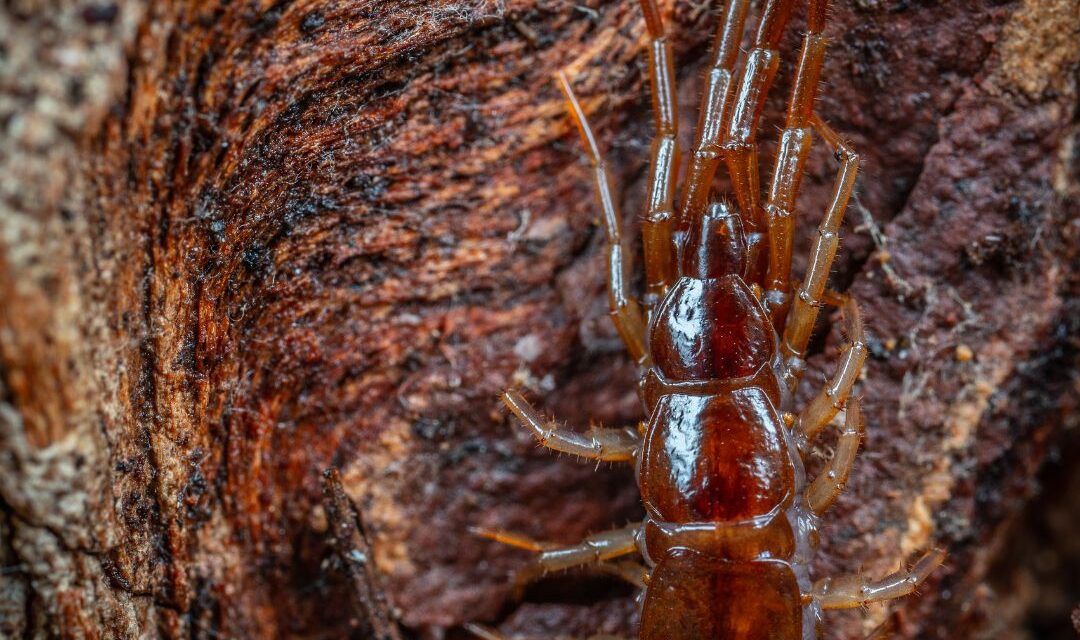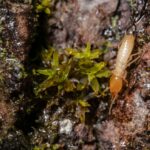- Estimated reading time: 13 minutes
Key Takeaways
-
- Herbal termite control offers a smart, safe, and green alternative to traditional chemical methods, protecting both your home and family’s health.
-
- Natural ingredients like neem oil, orange oil, and various essential oils are highly effective for deterring, disrupting, and eliminating termites.
-
- Choosing eco-friendly termite treatment significantly reduces environmental impact by cutting down on chemical runoff and protecting ecosystems.
-
- While excellent for prevention and localized issues, severe or subterranean infestations may require professional guidance and a more comprehensive strategy combining herbal termite solutions.
- An Integrated Pest Management (IPM) approach, which includes physical barriers, moisture control, and regular inspections, provides the most comprehensive and sustainable defense.
Table of contents
- Embrace Green Living: Your Guide to Herbal Termite Control and Eco-Friendly Solutions
- Key Takeaways
- 1. Understanding Herbal Termite Control and Eco-Friendly Treatment
- 2. Why Opt for Eco-Friendly Termite Treatment?
- 3. Key Natural Ingredients and Their Mechanisms in Herbal Pest Control
- 4. Exploring Organic Termite Spray Formulations and Holistic Herbal Solutions
- 5. Effectiveness, Considerations, and Professional Guidance for Herbal Termite Solutions
- Conclusion
- Frequently Asked Questions
Many homeowners today are increasingly worried about the environment. They also think about their family’s health when it comes to dealing with pests. Traditional chemical ways of getting rid of termites often raise these concerns. People wonder about the impact on nature and the safety of their loved ones.
This is where herbal termite control comes in. It’s a smart, safe, and green way to protect your home. This method is becoming very popular because it works well without harmful chemicals.
This guide will take a close look at what eco-friendly termite treatment means. We’ll explore why it’s a better choice for your home and the planet. We’ll also dive into the natural ingredients used in herbal pest control. You’ll learn about practical solutions, including how to use organic termite spray.
Our goal is to give you all the information you need. You can then make a clear choice to protect your property from termites in a greener, healthier way.
1. Understanding Herbal Termite Control and Eco-Friendly Treatment
When we talk about stopping termites, many people think of strong chemicals. But there’s a different, kinder way that uses nature itself. This is what herbal termite control is all about.
1.1. Definition: What is Natural Termite Management?
Herbal termite control, also called eco-friendly termite treatment, means using natural ingredients from plants. These methods help to keep termites away, get rid of them, or control how many there are. The main idea is to protect your home while being gentle on the environment. It also helps to avoid health risks that can come with man-made chemicals. This green approach uses natural termite solutions.
1.2. Principles: How it Works
This way of pest control fits well with something called Integrated Pest Management (IPM). IPM is a smart plan that always looks for the safest solutions first. It’s a full-picture strategy that prefers options that are less harmful. This includes using botanical treatments and sustainable pest solutions before stronger methods. It’s about finding a balance with nature.
1.3. Scientific Backing: The Green Movement
Experts and scientists agree that these natural options are important. Reputable sources like university extension services and the Environmental Protection Agency (EPA) talk about these safer ways to fight pests.
For instance, the University of Florida and UC Davis often share information on these alternatives. The Environmental Protection Agency (EPA) also discusses them. They highlight that these natural options are not harmful and break down easily in nature. This is a big change from older chemical pesticides. These natural solutions are a key part of a bigger “green pest control” movement. This movement wants to protect the Earth and reduce how much we use man-made chemicals.
“Herbal or eco-friendly termite control refers to methods that utilize natural, plant-derived ingredients and processes to deter, eliminate, or control termite populations, minimizing environmental impact and potential health risks associated with synthetic chemicals. This approach aligns with the principles of Integrated Pest Management (IPM), which prioritizes less toxic solutions. Sources like university extension services (e.g., University of Florida [https://sfyl.ifas.ufl.edu/lawn-and-garden/termite-control/], UC Davis [https://ipm.ucanr.edu/PMG/PESTNOTES/pn7415.html]) and the Environmental Protection Agency (EPA [https://www.epa.gov/ingredients-products-pesticide-programs/minimum-risk-pesticides-exempt-epa-registration-under-fifra]) discuss these alternatives, emphasizing their non-toxic, biodegradable nature compared to conventional pesticides. They are often presented as part of a broader ‘green pest control’ movement, aiming for sustainability and reduced chemical exposure.”
2. Why Opt for Eco-Friendly Termite Treatment?
Choosing a green way to get rid of termites is a big decision for many families. It’s about more than just getting rid of pests. It’s about making choices that benefit the environment and everyone living in your home. This thoughtful approach to pest management brings many positive effects.
2.1. Environmental Benefits: Protecting Our Planet
One of the biggest reasons to choose eco-friendly termite treatment is its kindness to the Earth. Experts regularly point out that these methods greatly cut down on chemical waste that can seep into soil and water. This reduction helps protect natural places like forests and rivers. It also keeps helpful bugs, birds, and other animals safe from harm. By choosing natural options, we reduce the overall mark our pest control efforts leave on the environment. This means a healthier planet for everyone.
2.2. Enhanced Safety for Occupants: A Safer Home
A main reason homeowners pick eco-friendly termite treatment is to keep their families safe. This means less exposure to strong chemicals for people, children, and pets. Unlike traditional termite killers, which can be risky if not used correctly or if they stay in the environment, natural methods offer peace of mind. Old chemicals can sometimes cause problems like breathing issues or skin rashes. Natural termite solutions, on the other hand, help create a much safer home. This makes your living space healthier for every member of your household.
2.3. Promotion of Sustainability: Long-Term Well-being
Eco-friendly methods support a way of life that helps the planet heal and thrive. They encourage natural ways of controlling pests. This reduces our reliance on man-made chemicals, which often come from fossil fuels. Choosing these methods connects to bigger ideas about living sustainably and using Earth’s resources wisely. It’s about making choices today that will benefit future generations. This green pest management supports a cycle of continuous environmental health.
2.4. Addressing Health Concerns: Peace of Mind
Many people worry about how man-made chemicals might affect their health over time. Choosing herbal termite solutions helps calm these worries. These natural substances are generally seen as less harmful or non-toxic to people and pets. They help to avoid potential issues that some old-fashioned pesticides can cause, like affecting hormones or even leading to serious illnesses. By using botanical treatments, you are choosing a path that prioritizes your family’s long-term health and well-being.
“All four points under ‘Why Choose Eco-Friendly Termite Treatment?’ from the research findings should be elaborated here. These include reducing chemical runoff into soil and water systems, protecting ecosystems, beneficial insects, and non-target organisms; minimizing exposure to harsh chemicals for humans, children, and pets; supporting sustainable practices in pest management by promoting natural cycles and reducing reliance on synthetic, often petroleum-derived chemicals; and addressing long-term health impacts associated with endocrine disruption, carcinogenicity, or neurotoxicity from some conventional pesticides.”
3. Key Natural Ingredients and Their Mechanisms in Herbal Pest Control
Nature offers many powerful ways to keep pests at bay. Several natural compounds, all coming from plants, are known for their ability to kill or repel insects. These form the very core of herbal pest control. They offer effective and safer ways to manage termites and other unwanted guests. Let’s look at some of the most important ones.
3.1. Neem Oil (Azadirachtin): Nature’s Termite Disruptor
Source and Action: From Tree to Treatment
Neem oil comes from the seeds of the neem tree, which grows in India and other tropical places. This oil contains a strong ingredient called azadirachtin. This natural chemical acts like a growth stopper for insects. It messes up how termites grow, shed their skin (molt), eat, and have babies. Because of this, the termite colony slowly gets smaller and weaker. Neem oil also makes wood taste bad to termites, so they don’t want to eat it. It even stops them from laying eggs in places that have been treated. This makes it a powerful botanical termite solution.
Efficacy: A Trusted Natural Insecticide
Many studies have shown how effective neem oil is. Research from science magazines about insects and university studies (e.g., entomology.ca.uky.edu/ef613) often talk about how well neem oil works against many different pests, including termites. Its wide-ranging effects make it a popular choice for organic termite defense.
Research from entomological journals and university studies (e.g., [https://entomology.ca.uky.edu/ef613]) often cites neem oil’s broad-spectrum insecticidal properties, making it effective against various pests, including termites.
3.2. Orange Oil (D-Limonene): Citrus Power Against Termites
Source and Action: Zest for Destruction
Orange oil is a strong extract taken from the peels of citrus fruits, like oranges. Its main active part is called d-limonene. When this oil touches a termite, it starts to work by melting the waxy outer layer of the termite’s body. This causes the termite to dry out and die. Beyond its killing power, orange oil also acts as a natural repellent, keeping termites away from treated areas. This citrus-based solution offers another path for natural termite management.
Limitations: Best for Close Encounters
While orange oil is very good at killing termites it touches, it has some limits. Experts, like those at the University of California, Davis, point out that it works best for small termite problems that you can see. It needs to touch the termites directly to work. This means it might not be the best choice for large colonies hidden deep inside walls or under your house. For widespread or hard-to-reach termite groups, its effectiveness is reduced.
Sources like the University of California, Davis [https://ipm.ucanr.edu/PMG/PESTNOTES/pn7415.html] point out its limitations for widespread or inaccessible colonies because it requires direct contact with the termites.
3.3. Essential Oils: A Symphony of Scents for Termite Control
Key Compounds: Nature’s Secret Weapons
Many other essential oils, full of fragrant plant compounds, also offer ways to fight termites. These include:
- Clove Oil: Contains eugenol.
- Peppermint Oil: Contains menthol.
- Cedarwood Oil: Contains thujone.
- Vetiver Oil: Contains nootkatone.
- Tea Tree Oil: Known for its antiseptic and insecticidal properties.
These natural extracts are crucial for effective herbal termite control.
Mechanisms: Repel, Disrupt, Destroy
These powerful plant extracts can work in different ways. Some act as strong repellents, simply driving termites away. Others stop termites from eating (antifeedants), making treated wood unattractive. Many essential oils also act as direct contact insecticides. They can harm termites by disrupting their tiny nervous systems or making it hard for them to breathe. This leads to their death.
Research: Combining for Better Results
Scientists are always studying these oils. Research often found in pest management journals and entomology studies (e.g., pubmed.ncbi.nlm.nih.gov/22379768/) looks at how well these oils work. Sometimes, combining different essential oils can make them even more powerful. This is called a synergistic effect. Their main jobs are to scare termites away and kill them on contact. Some even stop termites from growing properly. These botanical solutions are a cornerstone of natural termite management.
Studies, often found in pest management research and entomology journals (e.g., [https://pubmed.ncbi.nlm.nih.gov/22379768/]), investigate the efficacy of these oils, sometimes highlighting their synergistic effects when combined. Their primary mechanisms include repellency and direct contact toxicity, with some demonstrating growth-inhibiting effects.
4. Exploring Organic Termite Spray Formulations and Holistic Herbal Solutions
Dealing with termites doesn’t always mean reaching for harsh chemicals. There are many nature-friendly options, from ready-made sprays to clever traps and even ways to make your home less inviting for these pests. These holistic solutions form the backbone of modern eco-friendly termite treatment.
4.1. Organic Termite Spray Formulations: Ready for Action
Composition: Natural Power in a Bottle
Organic termite spray products are either bought from stores or made at home. They usually contain strong plant oils like essential oils (such as peppermint or cedarwood), neem oil, or d-limonene (from orange oil). These oils are often mixed with other natural ingredients so they can be sprayed easily. These natural pest sprays are a key part of green pest control.
Application: Target and Treat
These natural bug sprays are best used in specific ways. You can spray them directly onto termites you see. They are also good for treating small areas of wood that termites have attacked. Some people use them around the outside of their house to keep termites from coming in. They create a natural barrier.
Penetration: Surface Deep, Not Always Deep Down
It’s important to know that while these sprays work well for problems you can see, they don’t always soak deep into wood or soil. This means they are great for surface issues but might not reach hidden termite nests as well as some stronger chemicals do. For deep-seated infestations, a more comprehensive herbal termite control strategy might be needed.
4.2. Baits and Dusts: Smart and Natural Traps
Eco-friendly Baits: A Deceptive Meal
Some smart, nature-friendly ways to control termites use special bait systems. These baits are often made from wood or other plant materials that termites love to eat. But they have natural ingredients mixed in, such as plant-based chemicals that stop termites from growing. When termites eat this bait, they don’t just get sick themselves; they also carry the natural growth stopper back to their colony. This spreads the treatment, slowly weakening and killing the entire termite group. It’s a clever form of sustainable pest management.
Natural Dusts: The Drying Effect
Another useful tool is natural dust. Two common types are silica gel and diatomaceous earth. These dusts work by scratching the tough outer shell of a termite. This causes the termite to lose water from its body and dry out, eventually leading to its death. These dusts are a simple yet effective physical barrier and a non-toxic way to fight termites.
4.3. Physical Barriers & Integrated Approaches: A Full-Picture Plan
Holistic Strategy: More Than Just Spraying
Experts agree that eco-friendly termite treatment works best when it’s part of a bigger plan. This plan is called Integrated Pest Management (IPM). It means using many different methods together for the best results. It’s about creating a tough defense against termites.
Components of IPM: Building a Fortress
Here are the key parts of this smart, all-around plan:
- Physical Barriers: This means putting things in place that termites simply can’t get through. Examples include very fine mesh screens, strong stainless steel mesh, or layers of sand. These barriers are put around your house to physically stop termites from entering.
- Moisture Control: Termites love damp places. So, a big part of the plan is to fix any water leaks, make sure rain drains away from your house, and keep crawl spaces under your house dry and airy. Removing moisture helps take away a key thing termites need to live.
- Regular Inspections: It’s super important to check your home often for any early signs of termites. Catching a problem when it’s small makes it much easier to handle before it becomes a big infestation. This constant watch is vital for proactive pest management.
Synergy: Working Together for Lasting Protection
When you use all these methods together – physical barriers, moisture control, regular checks, and targeted herbal termite control applications – you create a strong, lasting defense. This teamwork of different strategies forms a holistic approach to keeping your home free from termites for a long time.
“All points from ‘Types of Organic Termite Spray and Other Herbal Solutions’ are integrated here. These include descriptions of organic termite sprays (composition, application, and penetration limitations), eco-friendly baits (cellulose-based with growth regulators), natural dusts (silica gel, diatomaceous earth for desiccation), and the comprehensive IPM strategy involving physical barriers (fine mesh, stainless steel, sand), moisture control, and regular inspections. The emphasis is on a holistic, synergistic approach to long-term management.”
5. Effectiveness, Considerations, and Professional Guidance for Herbal Termite Solutions
Choosing natural ways to protect your home from termites is a smart step towards a healthier living space. But it’s important to understand when these methods work best and when you might need extra help. Let’s look at the effectiveness of herbal pest control and what to keep in mind for your home.
5.1. Prevention vs. Infestation Severity: Knowing When to Act
Efficacy: Great for Early Defense
Experts, including pest control groups and university extensions, mostly agree on one thing: herbal pest control is really good for stopping termites before they start. It’s also very effective for dealing with small termite problems that are easy to see or for treating specific spots where termites are active. These natural solutions are excellent for maintaining a termite-free home through regular, green pest control.
Sources like professional pest control associations and university extensions (e.g., [https://www.pestworld.org/news-hub/pest-articles/whats-the-best-way-to-get-rid-of-termites/]) largely agree that herbal pest control is highly effective for prevention and managing small, localized infestations or spot treatments.
Limitations for Severe Cases: When to Call for Help
However, it’s important to be realistic. If you have a very big termite problem, one that’s spread out or involves termites hidden deep underground (subterranean termites), you’ll likely need professional help. These situations are complex. Hidden termite colonies can be hard to find and treat on your own. For severe issues, professionals might suggest stronger treatment options. These could be advanced eco-friendly termite treatment methods they specialize in, or in some cases, traditional methods if absolutely necessary.
5.2. Proper Application & Professional Help: The Key to Success
Crucial Application: Doing It Right
For any termite treatment to work well, you have to apply it correctly. This is especially true for natural solutions. They might not stay active for as long as man-made chemicals, so they need to be put in just the right places and in the right way. Correct use ensures effective organic termite defense.
Professional Expertise: More Than Meets the Eye
Professionals who deal with pests have special training. They have the right tools and deep knowledge to figure out what kind of termites you have. They can find hidden nests and apply treatments safely and effectively. Their experience is priceless, especially for complex situations or when trying new herbal termite control techniques.
Consultation: Your Best Next Step
If you’re dealing with a complicated problem, like termites deep underground, or if you want to protect your whole house with eco-friendly termite treatment, it’s smart to talk to a licensed pest control expert. Look for professionals who know a lot about green pest management. They can give you the best advice and carry out the most suitable treatment plan.
5.3. Longevity & Reapplication: Keeping Up the Good Work
Degradation: Nature’s Way
Many natural treatments, especially sprays, don’t last as long as man-made chemicals. This means you might need to spray them again more often. This is because natural ingredients break down faster in the environment. While this means less toxic residue, which is good for safety, it also means you need to reapply them regularly to keep up the protection. This ongoing maintenance is a key part of sustainable pest solutions.
Benefit & Consideration: A Two-Sided Coin
The fact that natural treatments break down quickly is a good thing for the environment and your family’s health. It means fewer harmful substances linger around. However, it also means you need to remember to reapply them. This ensures your home stays protected from termites all the time.
5.4. Regulatory Status of Products: Ensuring Safety and Quality
Minimum Risk Pesticides: Safe and Sound
It’s helpful to know that many essential oils are considered “minimum risk pesticides” by the EPA. This means they are seen as very safe and don’t need the same tough registration process as other chemicals. But even so, it’s very important to use products that are either approved by the EPA or have a trusted organic certification. This applies to any organic termite spray or other natural termite solutions you choose.
Ensuring Quality: What to Look For
Always make sure that commercial organic termite spray products clearly list what’s inside and give clear instructions on how to use them. Checking for approvals or certifications helps make sure the products are safe, work as they say they do, and are of good quality. This careful choice protects your family and your home effectively.
“All points from ‘Effectiveness and Considerations for Herbal Termite Solutions’ are integrated here. This includes the effectiveness of herbal pest control for prevention and localized infestations versus limitations for severe cases, the crucial need for proper application and professional expertise, the understanding that natural treatments may require more frequent reapplication due to faster degradation, and the importance of using EPA-approved or certified minimum risk pesticides to ensure safety, quality, and proven efficacy claims for organic termite spray products.”
Conclusion
The move towards herbal termite control and eco-friendly termite treatment shows a clear demand for safer and more lasting ways to manage pests. Homeowners want solutions that protect their property without harming their family or the planet.
We’ve seen that natural ingredients like neem oil, orange oil, and various essential oils are powerful. They are excellent for keeping termites away and for handling small, specific infestations. These botanical solutions are truly effective.
It’s also clear that for bigger termite problems, a full and well-planned approach is key. This often means getting help from experienced professionals. They can combine the best natural methods with smart prevention techniques.
The big benefits of reducing harm to our environment and making our homes safer for everyone are huge. This makes herbal pest control an increasingly attractive and responsible choice. It helps create a greener, healthier home for you and your loved ones. Make the choice for natural termite management and embrace a sustainable lifestyle.
Frequently Asked Questions
- Q: What is the main difference between herbal and traditional termite control?A: The core difference lies in the ingredients. Herbal termite control uses natural, plant-derived substances to deter or eliminate termites, minimizing environmental impact and health risks. Traditional methods often rely on synthetic chemicals that can have broader ecological and health concerns.
- Q: Are herbal termite solutions effective for severe infestations?A: Herbal solutions are highly effective for prevention and managing small, localized infestations. For severe, widespread, or subterranean termite problems, professional assistance is usually recommended, as these issues require specialized knowledge and potentially a combination of advanced eco-friendly methods.
- Q: How often do I need to reapply organic termite sprays?A: Natural treatments tend to break down faster in the environment compared to synthetic chemicals. Therefore, regular reapplication, often more frequently than traditional pesticides, is necessary to maintain continuous protection against termites. Always follow the product’s specific instructions.
- Q: What is Integrated Pest Management (IPM) in the context of herbal termite control?A: IPM is a comprehensive strategy that combines various methods for pest control, prioritizing the least harmful options first. For herbal termite control, this means using natural treatments alongside physical barriers, moisture control, and regular home inspections to create a robust and sustainable defense against termites.
- Q: Where can I find reliable information on eco-friendly termite treatments?A: Reputable sources include university extension services (like the University of Florida or UC Davis), the Environmental Protection Agency (EPA) for “minimum risk pesticides,” and licensed pest control professionals specializing in green pest management.










